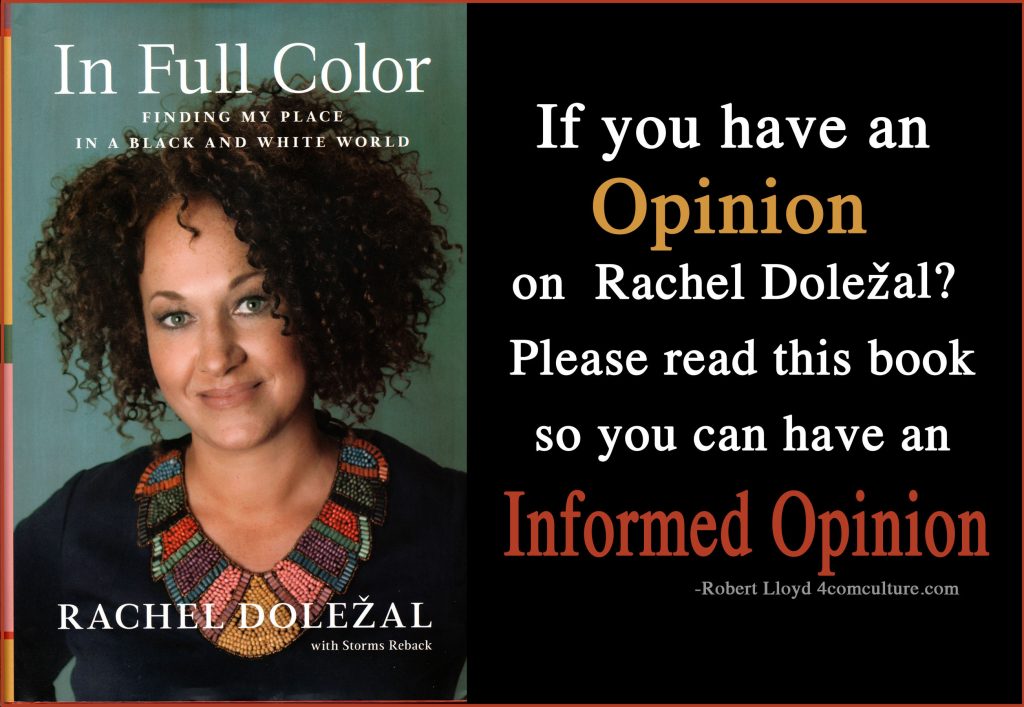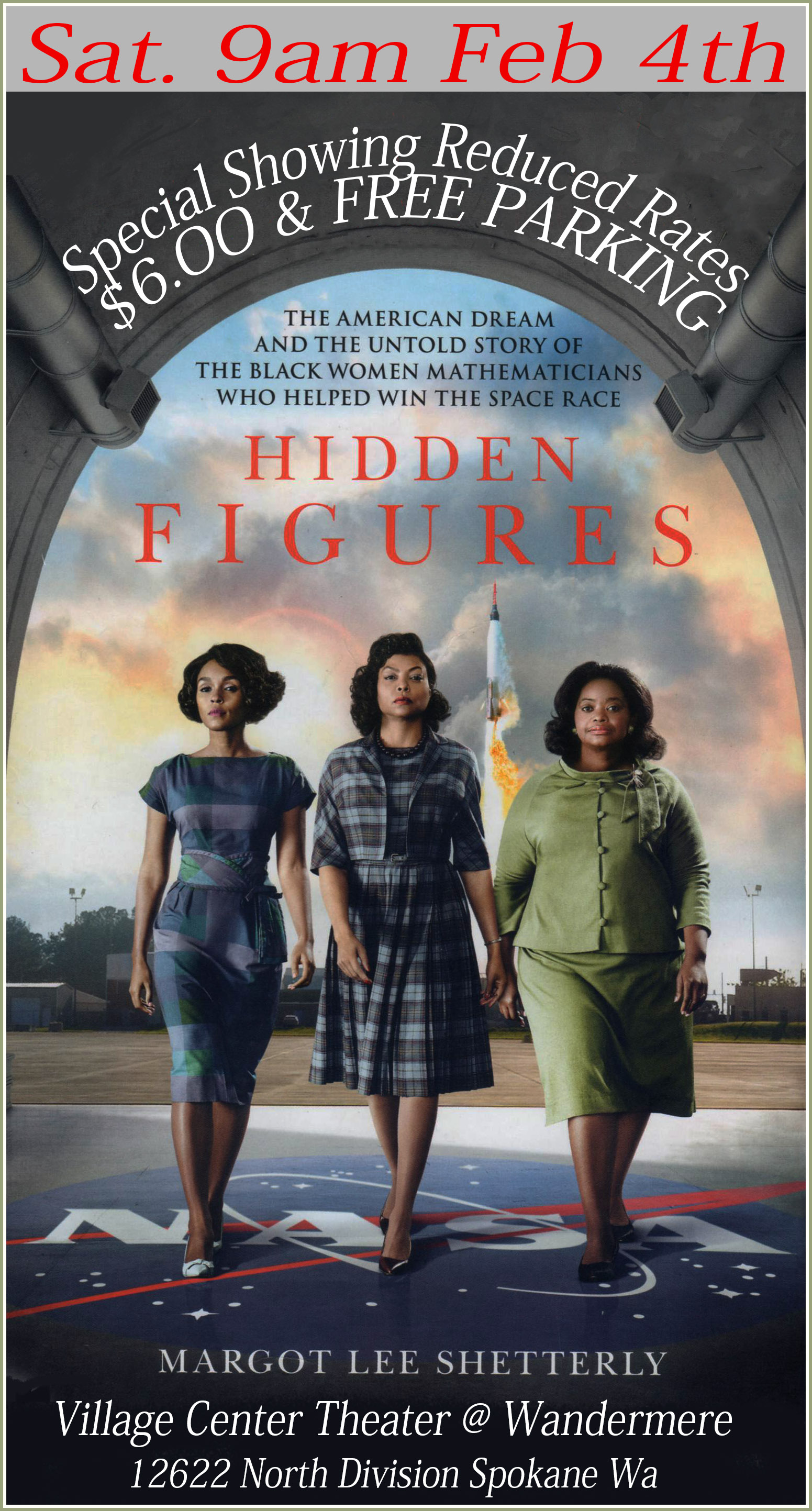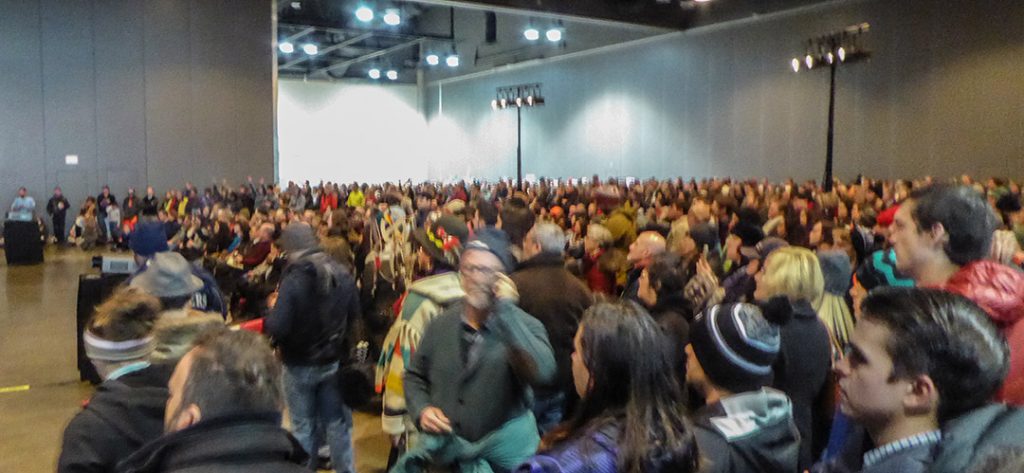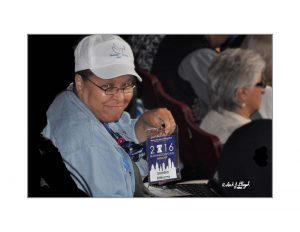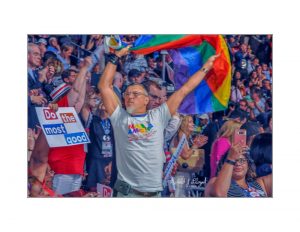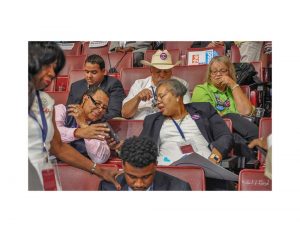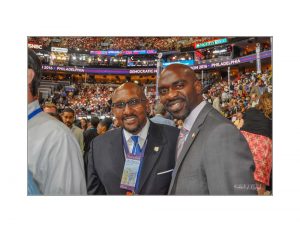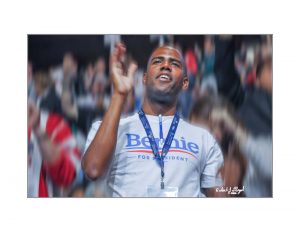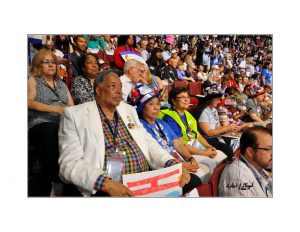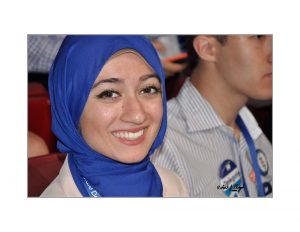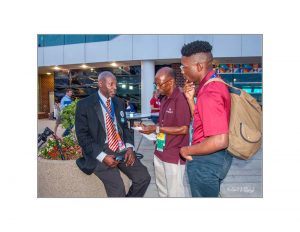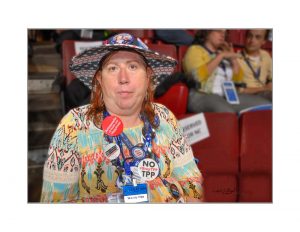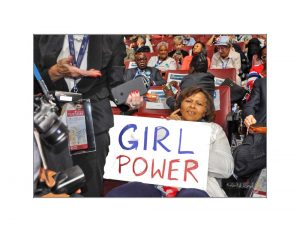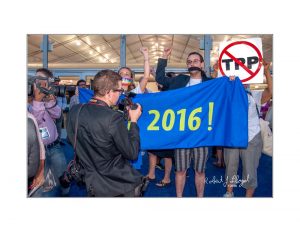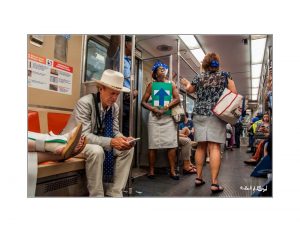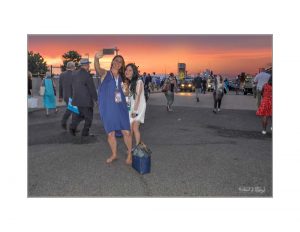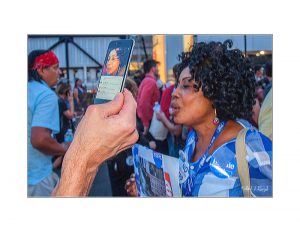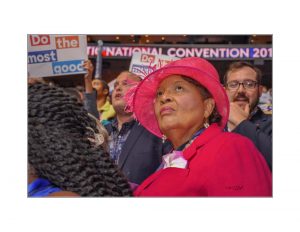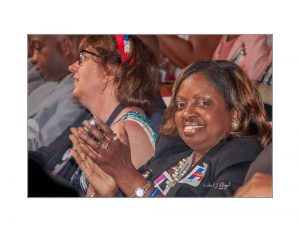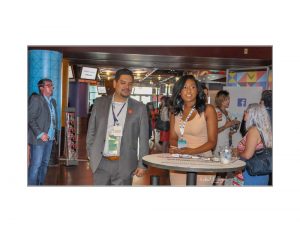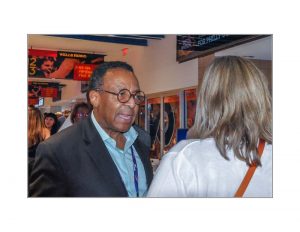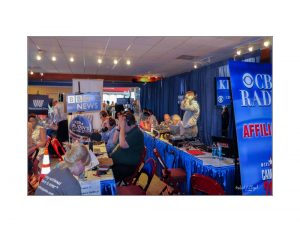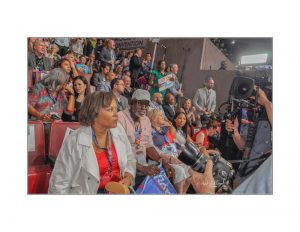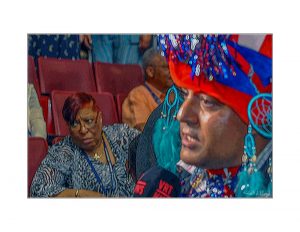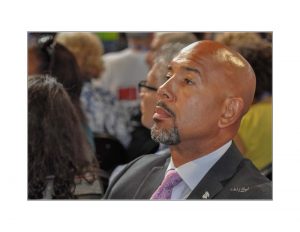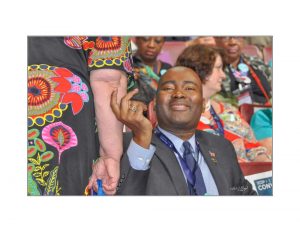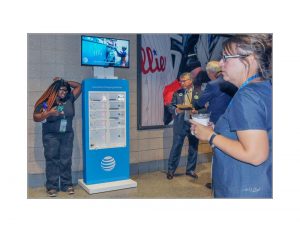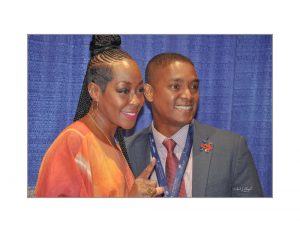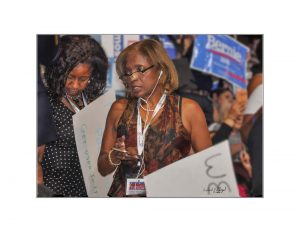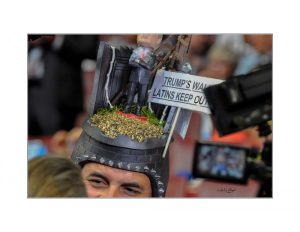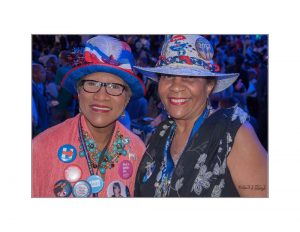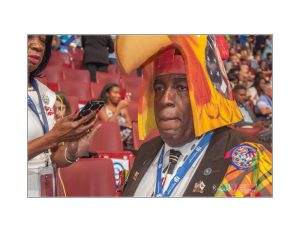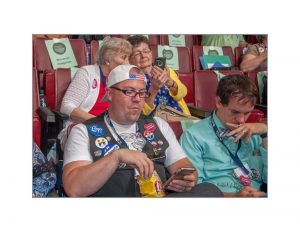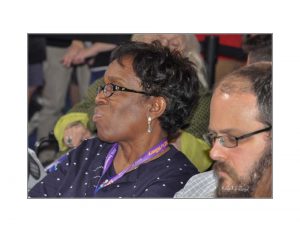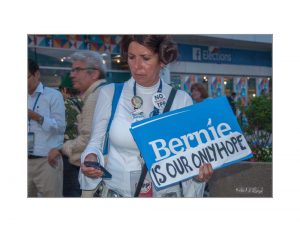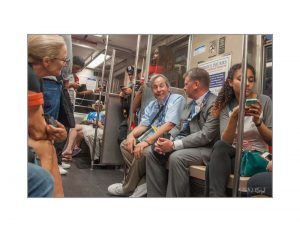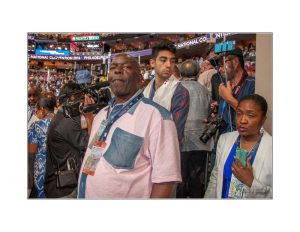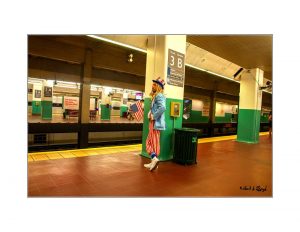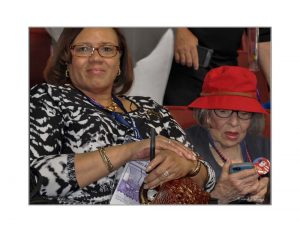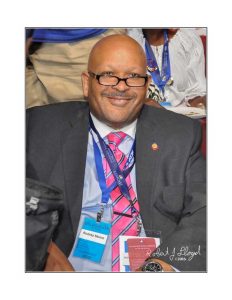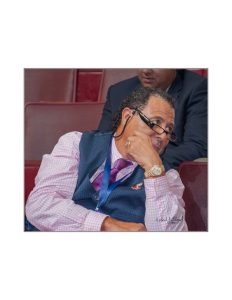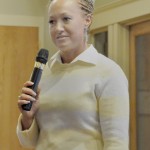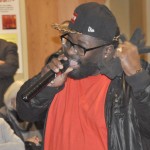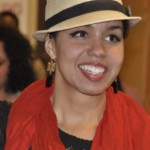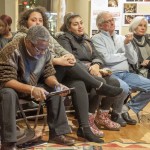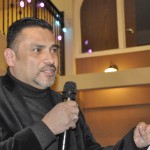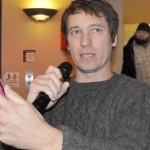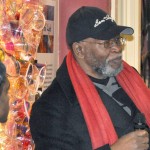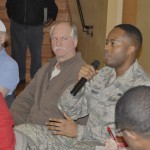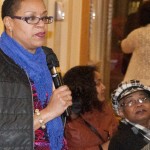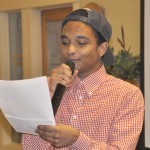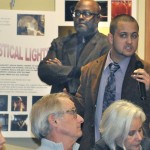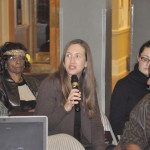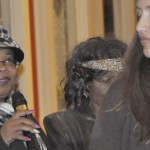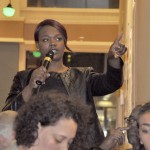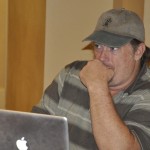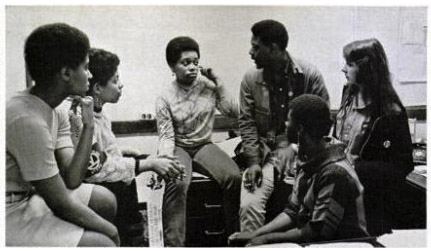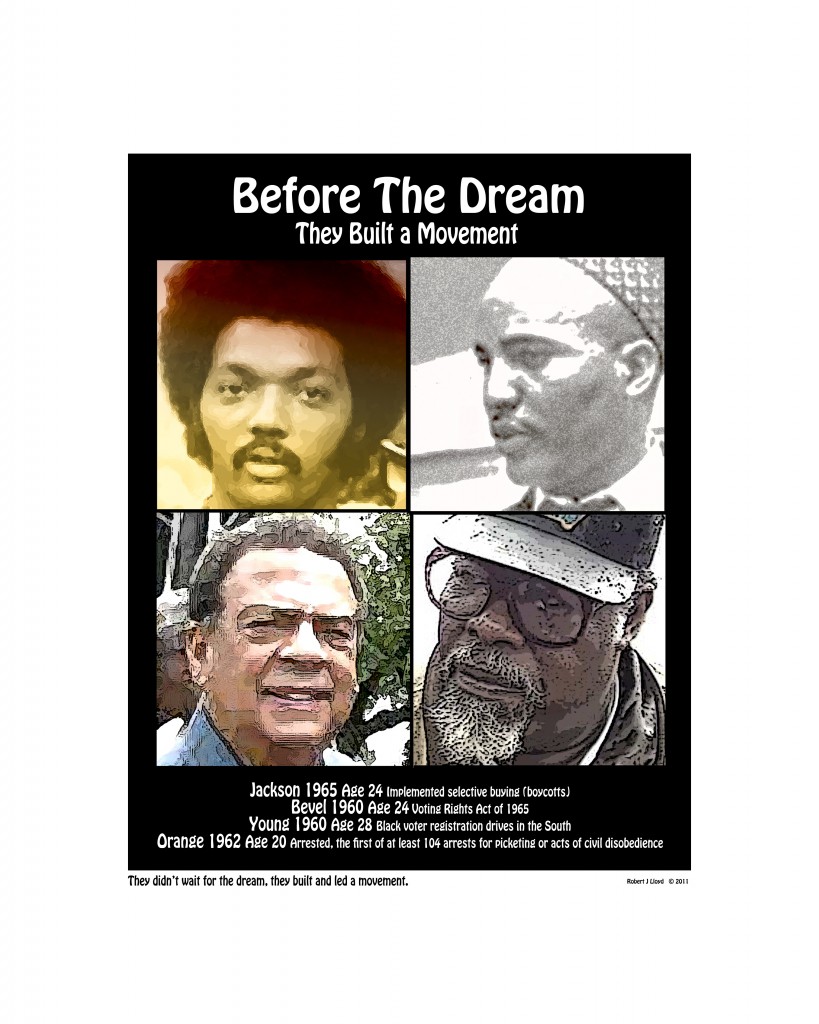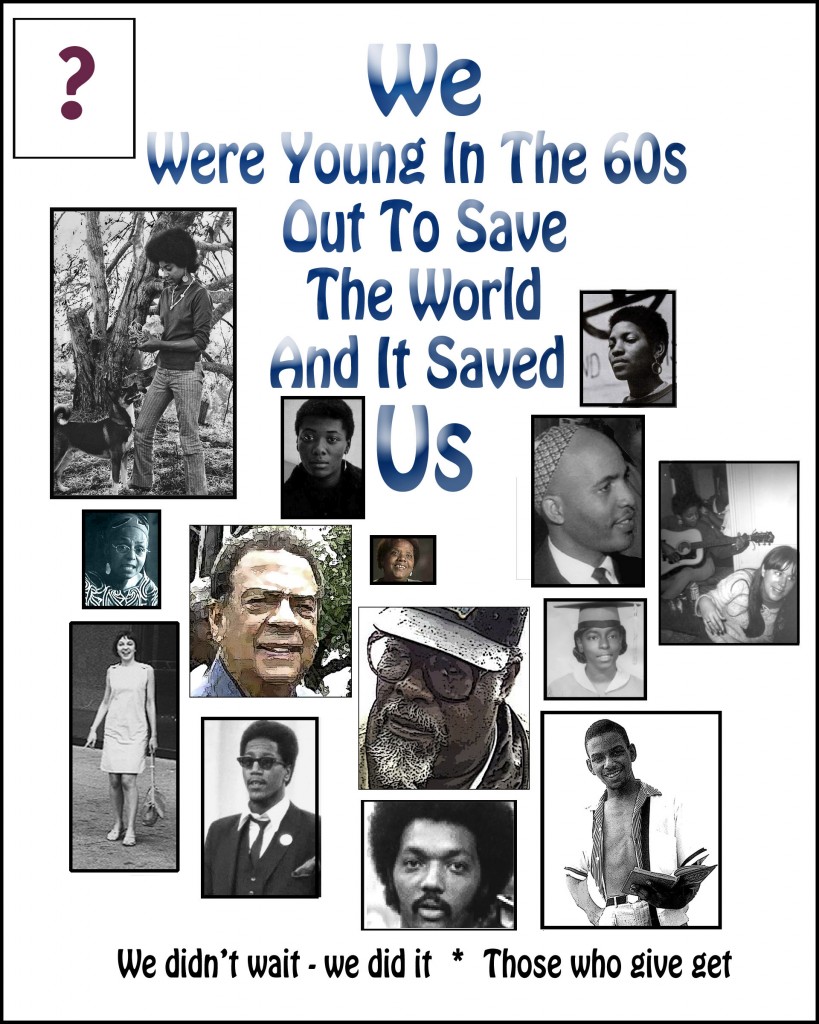Category Archives: History
Dr. Joy DeGruy Speaks at EWU
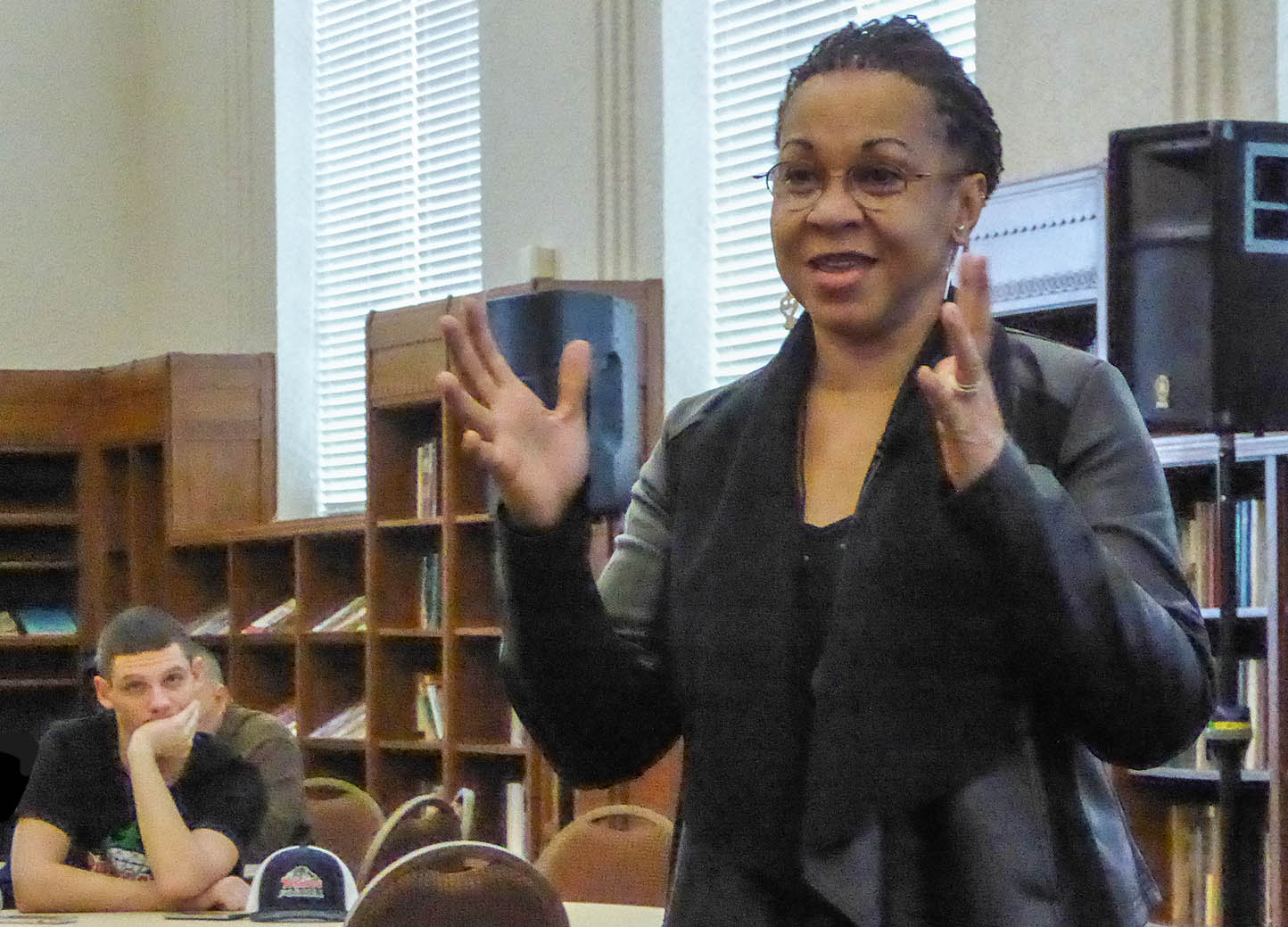 On February 16, 2016 internationally renowned educator and researcher Joy DeGruy, PhD, held a special workshop at Eastern Washington University on topics of cultural sensitivity and diversity, as well as areas of mental and ecological resilience. DeGruy’s four-hour presentation, Culture-Specific Models of Service, Delivery and Practice, was sponsored by EWU’s Black Student Union (BSU) and co-sponsored by EWU’s Afri
On February 16, 2016 internationally renowned educator and researcher Joy DeGruy, PhD, held a special workshop at Eastern Washington University on topics of cultural sensitivity and diversity, as well as areas of mental and ecological resilience. DeGruy’s four-hour presentation, Culture-Specific Models of Service, Delivery and Practice, was sponsored by EWU’s Black Student Union (BSU) and co-sponsored by EWU’s Afri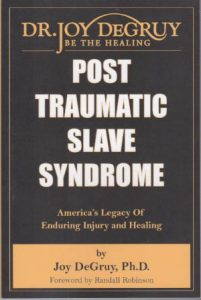 cana Education Program, the Office of the President and Housing and Residential Life.
cana Education Program, the Office of the President and Housing and Residential Life.
In addition to her pioneering work in the explanatory theory and book, Post Traumatic Slave Syndrome, DeGruy has developed a culturally based education model for working with children and adults of color.
For the complete article click on the link below:
Dealing with Cognitive Dissonance: The Statue of Liberty
Hidden Figures: A Must See for Mothers and Daughters
Let’s Commit Ourselves
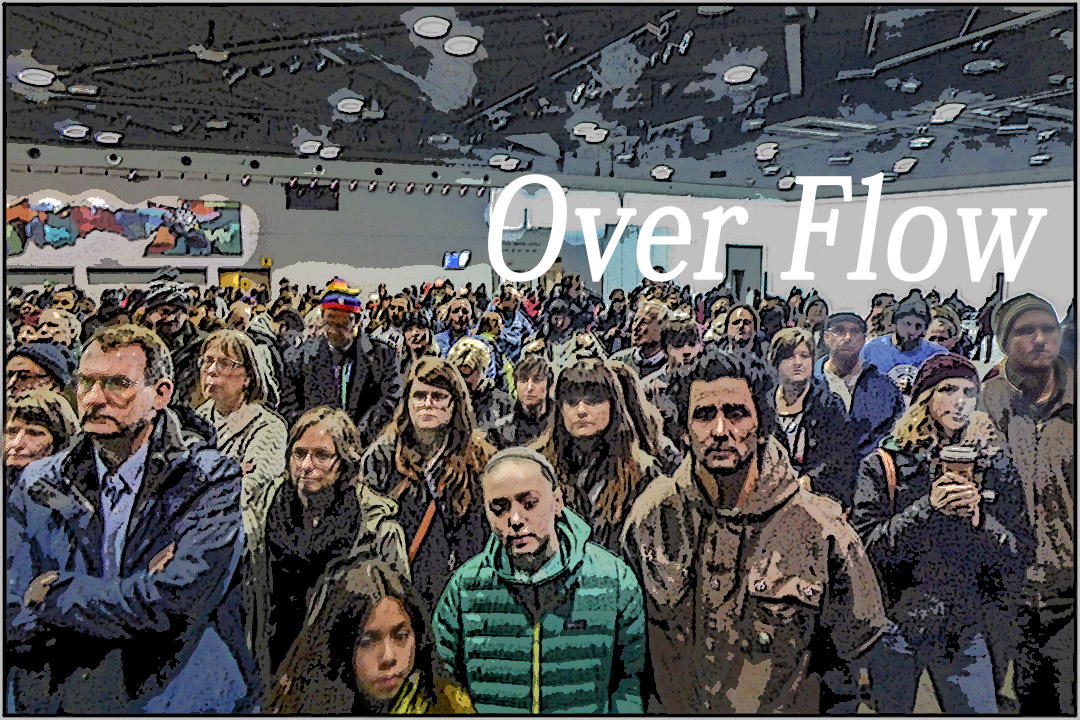 Martin Luther King Day Celebration 2017
Martin Luther King Day Celebration 2017
OK, we had our celebration with speeches and the march.
Now Let’s Commit Ourselves
Since 2008 news and social media have done nothing but complain about what politicians did and did not do. If they have not accomplished goals and objectives it is no one’s fault but your own. If you are not satisfied with the 2016 election I suggest that you step up and do something about it.
From the list below, choose the issue you feel needs action, list the issue and the name of an organization that works on that issue in the comment box below and fill in your contact information. If you do not know of an organization, volunteer to start such an organization. I will pass your contact information on to the appropriated organization. Also I will collate the information everyone contributes and post the results at this site 4comculture.com. To stay aware of current posts at this site in the right hand side bar SUBSCRIBE to receive an email notifying you of new posts (a couple per week).
What Will You Commit To
Protest (Civic Disobedience, Non-violent direct action, Go to jail), Government service, Social justice, Political action, Political parties (Democratic, Republican, Independent, Progressive), Employment (Jobs and training), Housing, Healthy food production, Education (K12, College), Environment (Climate change etc.) Community organizing, Social justice, Community service, Social services, Health and safety, Drug abuse prevention, Community security, Reproductive rights, Hunger, Homelessness, Race relations, Human relations, Art and culture, International affairs, Belief systems (Humanism etc.).
Protected: Mask Maker Felipe Horta
Protected: Photos for AKIRA & FAMILY
The 2016 Democratic National Convention
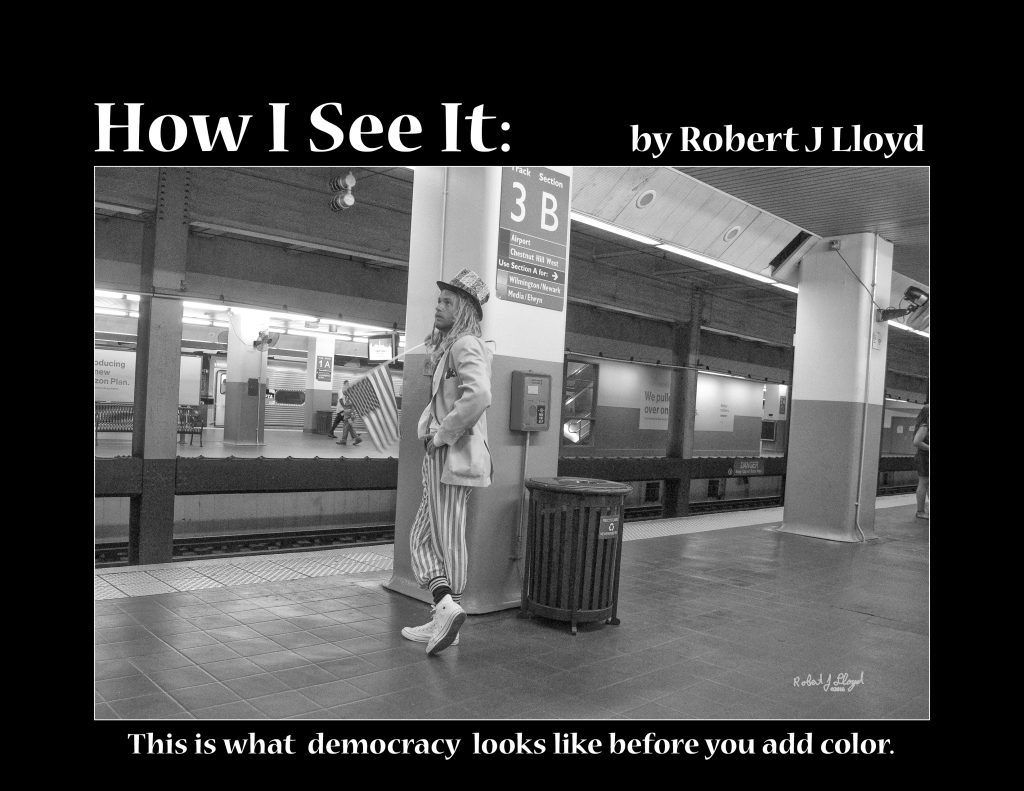 Living in the Inland Empire of the Pacific Northwest we hear President Obama talk about hope and we see glimpses through the national media and online communications that a change is coming but it has not yet hit our corner of the northwest. The Democratic Party, progressives, the Socialist Alternative and churches have little to show in the way of diversity other than tokenism. Seeing the Republican Party’s convention and their choice of Donald Trump as presidential candidate makes one lose hope in the future of America.
Living in the Inland Empire of the Pacific Northwest we hear President Obama talk about hope and we see glimpses through the national media and online communications that a change is coming but it has not yet hit our corner of the northwest. The Democratic Party, progressives, the Socialist Alternative and churches have little to show in the way of diversity other than tokenism. Seeing the Republican Party’s convention and their choice of Donald Trump as presidential candidate makes one lose hope in the future of America.
The 2016 Democratic Convention showed what democracy can be when color is added. Taking these pictures inspired this visual communicator and I hope looking at them will inspire you too.
Follow How I See It: the 2016 Presidential Election. Visit the page to view more pictures and share your responses.
I dedicate these images to Anderson Stoakley Lloyd, my 8 year old grandson. I want to thank Diane Lloyd, my wife, my support and technical assistant; Sandy Williams and the Black Lens News; Pastor Percy Happy Watkins and New Hope Baptist Church; and Philadelphia cousins Ramona Rousseau-Reid and Joseph Reid.
Black Agenda Pledge of Cooperation for Unity
PREAMBLE We are the Black Community. We honor, acknowledge and represent a great range of people. Racially, we are African Americans, _______, _________ and so much more. Our religions include a variety of denominations. Some of us are Agnostic. Some of us define ourselves as distinctly Non-Religious. Our Community members include heterosexuals, gays, lesbians, bi-sexuals, transgendered and the disabled. We work as social workers with children, young adults, mentally and physically disabled folk and people with HIV+ status. We work in the military. We work in education on all levels. We are entrepreneurs in the arts, theater, music, photography, sales, services, food and hospitality, unions and __________. Some of us don’t work. We are retired, students, unemployed or receiving public assistance. We hold a variety of political views. We represent a variety of income levels. All this and more are represented in our Community. We are the Black Community, by birth, by marriage and by choice. We celebrate and accept our members in all our diversity and find strength in our acceptance of each other. May this acknowledgement of people in all our shapes and sizes spread from our Community throughout our nations, throughout the world. By signing this pledge in support of the Black Agenda I understand that I will be there for other individuals and organizations and they will be there for me and my organization. Signed _________________________________________Date ___/___/2015 If you agree with these principles type your name and the date in the CONTACT US form to the right.
Posted at: www.4comculture.com Contact: info@4comculture.com
A Change to Spokane NAACP
On December 23 the Spokane chapter of the NAACP held a strategy meeting where the president-elect Rachel Dolezal presented a PowerPoint of her suggested organizational structure and suggested officers for the new year. It was obvious looking at the room that there is new interest in the organization. See links to older 4comculture posts and pages regarding NAACP activity and compare them to posts of activity since Ferguson. I think this is the beginning of a new movement with a much younger and energetic group. Only time will tell. I would encourage those under 40 to join the civic engagement and that we older folks stay home and send a check to support the youth.
Historical Note: When Dr. King joined the Montgomery Bus Boycott he was 26 years old. When he died he was 39 years old. Below are photographs of the SCLC field staff who were all in their late teens and early 20’s.
Post Ferguson MO
Spokane solidarity with Ferguson MO
Pre Ferguson MO
The Nuns Who Saved ObamaCare
My friend Betty Jones, a 1960’s SCLC civil rights activist, sent me this link. The Parking Lot God was looking out for me. This message is so timely because yesterday I attended my second meeting of the Men’s Book Group. This is a group of retired Whitworth University (Presbyterian) faculty and friends. The topic of discussion was the Time Man of the Year article on Pope Francis. We were discussing the tension between church activists at a community level with that of the hierarchy. The meeting ended after a great discussion but there was a question mark. Now that the hierarchy has heard the voice of the people and has provided cover for progressive social justice activities, no one has an excuse for their lack of activism. Enjoy this story of Sister Simone Campbell, the nun who saved ObamaCare.
Click here to listen to the podcast on iTunes—and if you like it, subscribe and post a review!

